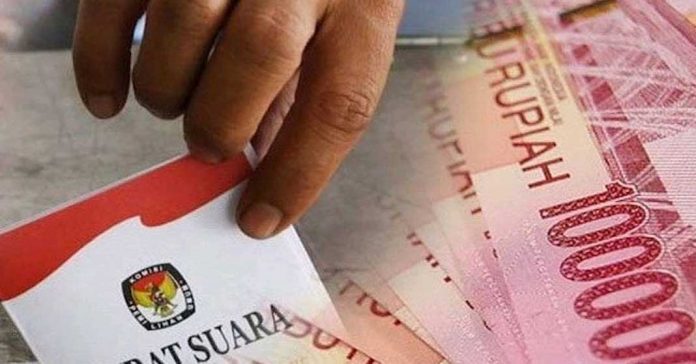Synergize to Reject Money Politics for Regional Elections with Integrity
By: Haikal Fathan Akbar)*
Fighting money politics in the regional elections is not just a discourse, but a real step that must be taken to maintain the integrity of our democracy, especially ahead of the 2024 regional elections. Money politics is not only an act that violates the rules, but is also a form of crime that damages the foundations of democracy.
If we want the 2024 Pilkada to be clean and fair, it is time for the community and all parties to unite against this practice. With awareness and courage, we can reject the temptation of money politics and ensure that the elected leaders are the best, not those who are bought.
The Head of the South Kalimantan General Election Supervisory Body (Bawaslu), Aries Mardiono, emphasized that money politics is not only a violation, but also falls into the category of crimes in regional elections that must be eradicated without compromise.
Amid the increasingly heated political atmosphere ahead of the 2024 Pilkada, Aries called on all parties to maintain integrity and avoid all forms of transactions that pollute democracy.
According to him, money politics not only damages the election process, but also affects the quality of leadership produced. With the existence of money transactions in the Pilkada, political decisions are no longer based on the capabilities and integrity of the candidates, but on the basis of the money given.
This has great potential to lead to corrupt government, because leaders who are elected through money politics tend to prioritize personal or group interests over the interests of the people.
In his explanation, Aries reminded that the practice of money politics has been strictly regulated in Article 187A of Law Number 10 of 2016 concerning Regional Elections. Anyone proven to have committed an unlawful act by promising or giving money or other materials in return to citizens to influence political choices will be subject to a minimum of 36 months to a maximum of 72 months in prison, as well as a fine of between Rp200 million and Rp1 billion. This applies not only to the giver, but also to the recipient of money politics.
This severe sanction shows how serious the government is in handling the problem of money politics. However, unfortunately, this practice continues to occur, especially during the campaign period until the election day. At this point, the role of supervision becomes very crucial.
Aries also acknowledged that the campaign period is the most vulnerable time for money politics. Candidate pairs and campaign teams often take advantage of this moment to approach the public with the lure of money, especially in areas considered to be potential vote bases.
This condition further exacerbates injustice in regional elections, because candidates who have greater resources tend to dominate through transactional politics.
Bawaslu, as the vanguard in supervising the Pilkada, continues to strive to prevent and prosecute any violations that occur. However, supervision from this institution has limitations, especially in terms of the number of personnel and the extent of the supervision area.
Therefore, the role of the community in conducting supervision is very important. Without active involvement from the community, efforts to eradicate money politics will not be effective.
A real example of the commitment to eradicate money politics can be seen from the efforts of the Bawaslu of Batu City, East Java. They continue to socialize and educate the local community about the dangers and negative impacts of money politics. Supriyanto, Head of the Bawaslu of Batu City, said that one of the most vulnerable times for money politics to occur is the quiet period and D-1 before the vote.
At such times, usually the perpetrators of money politics move secretly, even choosing the middle of the night to distribute money to the public. This strategy is used to avoid increasingly strict officer supervision.
However, Bawaslu did not remain silent, they together with the Integrated Law Enforcement Center (Gakkumdu) team often carried out sting operations (OTT) against perpetrators of money politics.
Public awareness is key to eradicating money politics. Supriyanto emphasized that Bawaslu really needs support from the public in terms of supervision. People who know or see money politics practices in their environment are expected to report immediately. That way, Bawaslu can immediately take action against perpetrators of money politics and prevent further fraud.
Not only Bawaslu, the police also have an important role in ensuring that the 2024 Pilkada is free from money politics. The South Sulawesi Police Chief, Inspector General Pol Yudhiawan, when giving a speech in Makassar, reminded the people of South Sulawesi to maintain harmony during the Pilkada. In addition, he also emphasized the importance of avoiding money politics, which he said would only lower the people’s self-esteem.
Money politics not only harms democracy, but also damages public morals. When someone accepts money to vote for a particular candidate, they are essentially selling their vote, which is the most basic right in a democracy.
The votes that should be used to elect the best leaders are instead used as transaction tools. This, of course, will have a negative impact on the future of our region and country.
A clean and fair election can only be realized if all elements of society, including voters, candidates, and election organizers, have the same commitment. Every individual must be aware that money politics is a common enemy that must be fought.
Let us make the 2024 Pilkada a momentum to show that democracy in Indonesia is still healthy and runs according to the right principles.
)* The author is a contributor to Vimedia Pratama Institute
